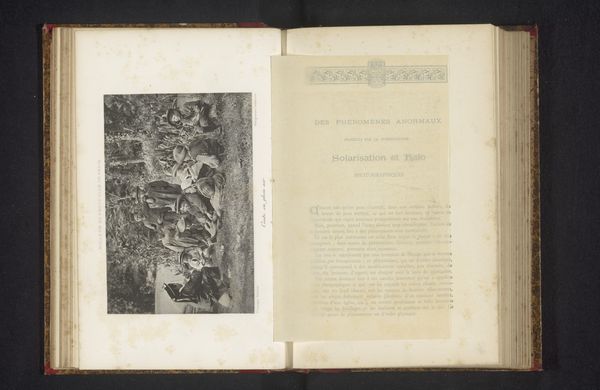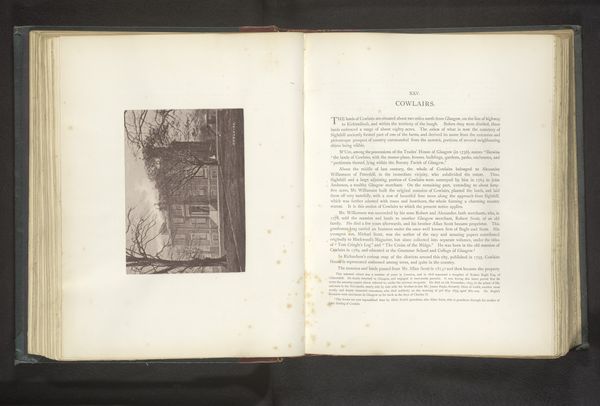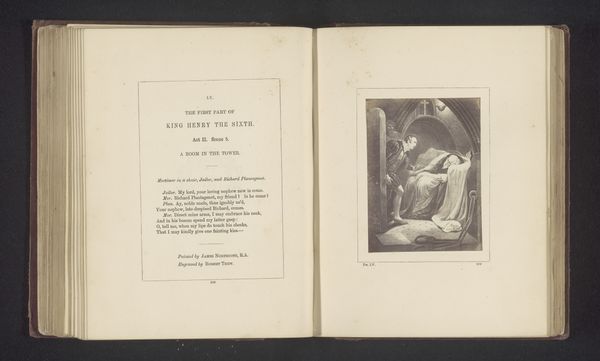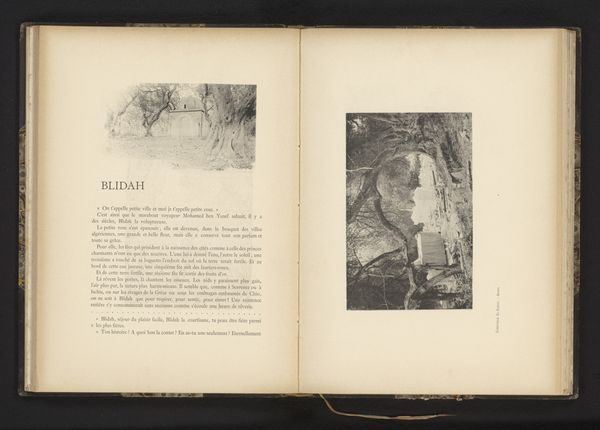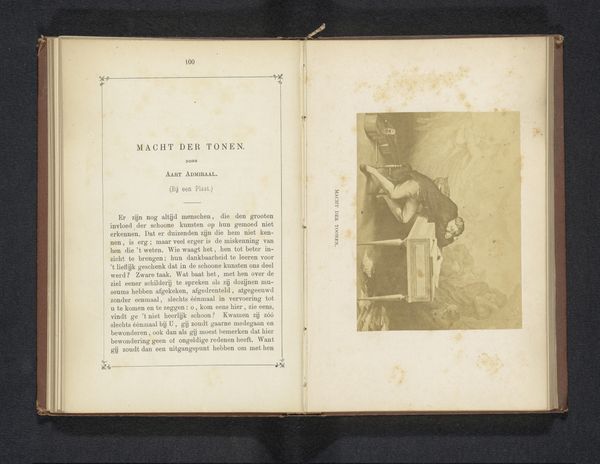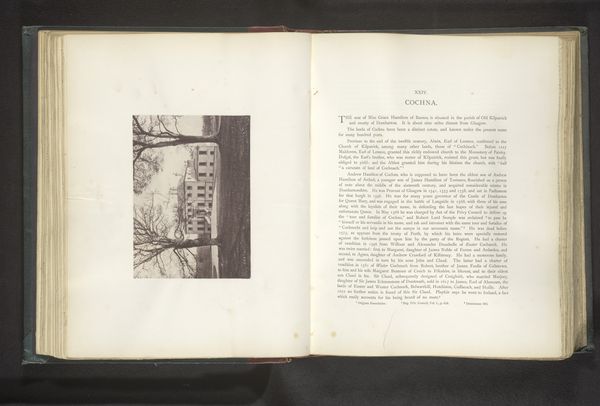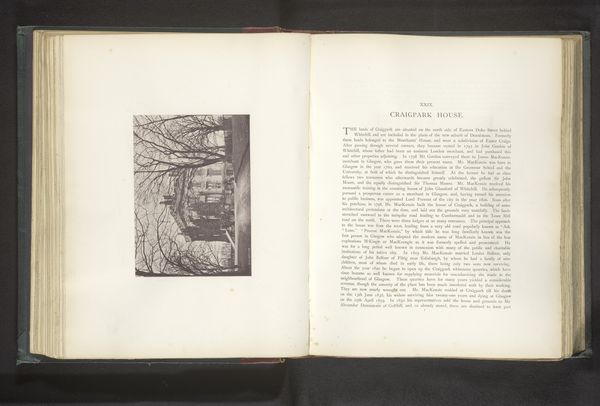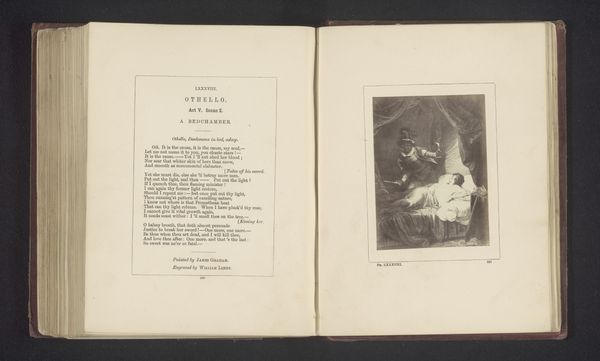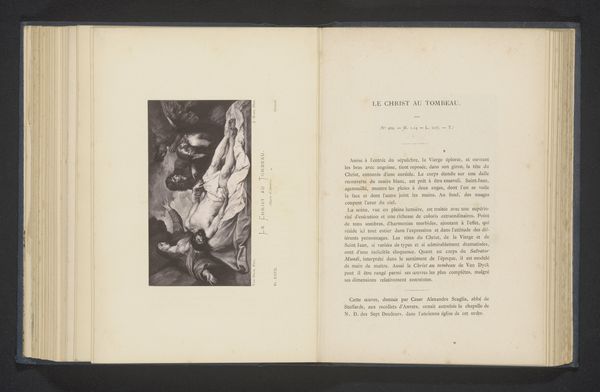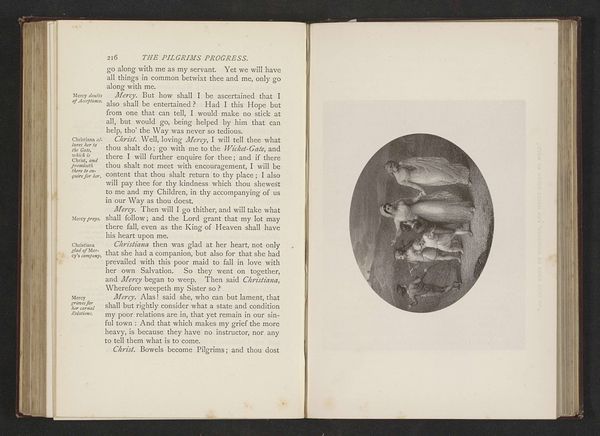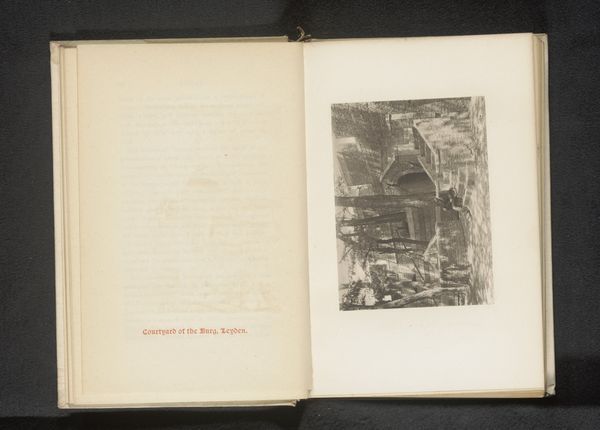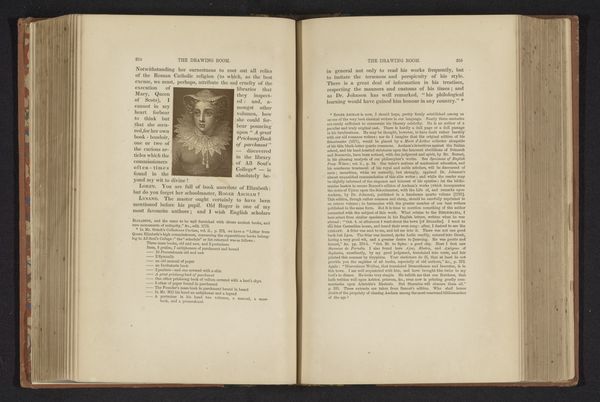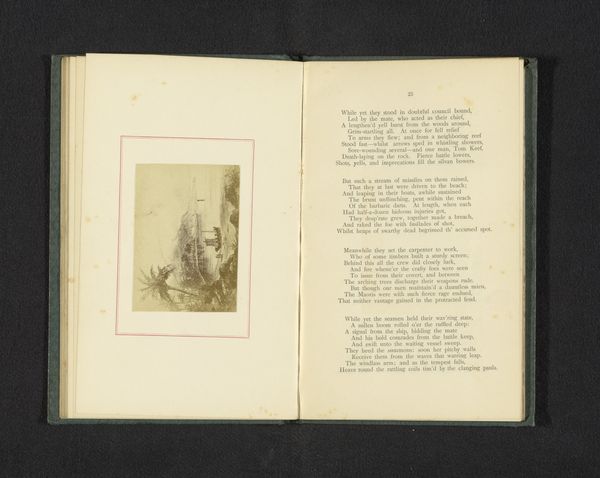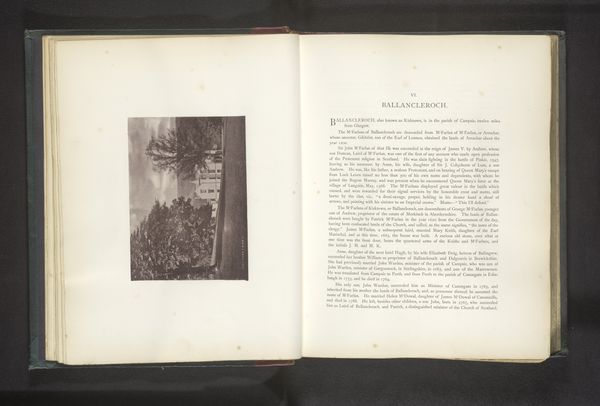
print, paper, photography
#
portrait
#
aged paper
#
homemade paper
#
paperlike
# print
#
sketch book
#
hardpaper
#
landscape
#
paper
#
photography
#
personal sketchbook
#
journal
#
thick font
#
history-painting
#
historical font
#
columned text
Dimensions: height 90 mm, width 115 mm
Copyright: Rijks Museum: Open Domain
Curator: So here we have, facing one another, the image 'Gezicht op Manor House in Morley, de geboorteplaats van Titus Salt,' paired with some historical text. They are nestled in what looks to be an opened, aged book. I notice that the paper and printmaking itself appear central to the artistic expression here. What strikes you? Editor: It is the contrast! The stark photograph versus the ornate typeface… It's lovely, but… how should I be interpreting this? Curator: Let's think about the means of production. Both image and text rely on distinct, yet related, manufacturing processes. The image involves chemical processes, the printmaking for the text requires skilled labor. Do these methods tell us something about the society creating it? Editor: Maybe the industrial revolution’s impact on bookmaking? This object feels… mass-produced, yet carefully assembled. How were such items circulated and consumed during this period? Curator: Precisely. Consider the rise of a reading public. The historical text informs local identity, even as industrial methods standardize book production. This creates a tension. Is this ‘high art’ or a manufactured artifact aimed at broader consumption? Does it even matter? Editor: So, the focus isn't solely on aesthetic beauty but also on the socio-economic factors impacting its creation and distribution? It challenges traditional views of what’s valuable in art. Curator: Absolutely. Understanding the labor, materiality, and consumption habits tied to this artwork unlocks richer meanings beyond mere aesthetics or historical record. What does the materiality tell you? Editor: The tactile quality is palpable, as it speaks of human handling, wear and tear – the aging process becomes part of its history. I will never look at an old book the same way again!
Comments
No comments
Be the first to comment and join the conversation on the ultimate creative platform.
